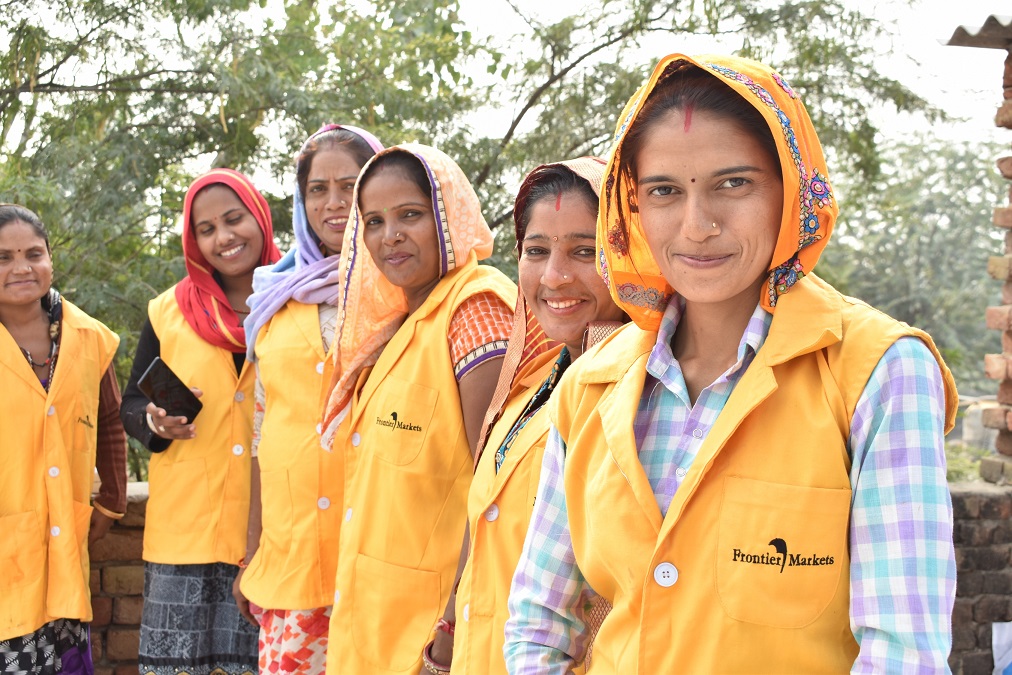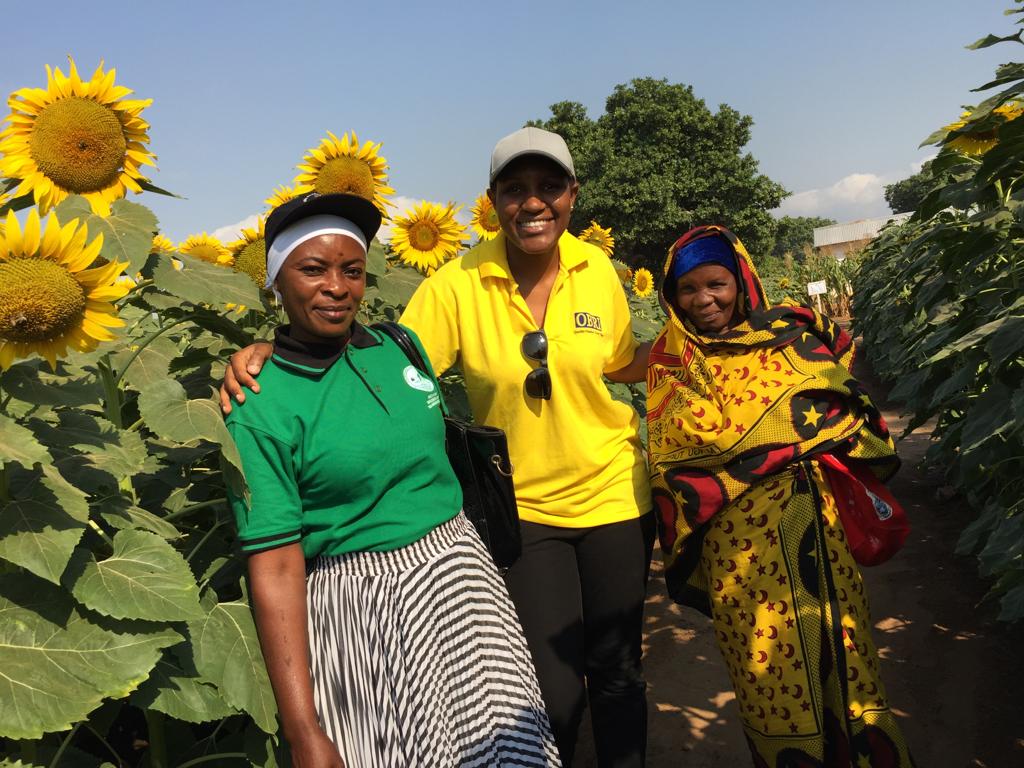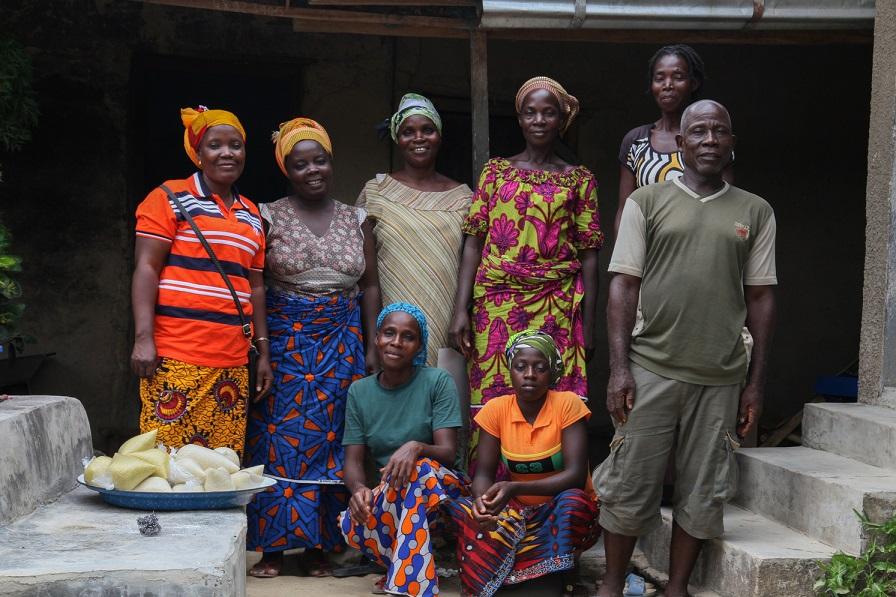Inclusive business for women economic empowerment
Every day, an estimated 810 women die due to complications of pregnancy and childbirth. According the World Health Organization, most of these deaths are preventable.
In Nigeria, Temie Giwa-Tuboson has set out to bring this number down. “No one should lose her life to bring new life to the world”, the inclusive business entrepreneur says. To save women suffering from postpartum bleeding, she has founded a medical logistics company catering to poor and low-income patients. “If you call us at 2:00 am, we will do whatever it takes to get the supply to wherever you need it”, she says. Since 2016, LifeBank has helped save 20,000 patients.
Like LifeBank, there are many inclusive business companies catering to low-income women. They offer critical products and services, empower female employees or offer sustainable income opportunities to women in their value chains.
Why should inclusive businesses care about women? How do they include women, and how can they be supported?

Why are inclusive business companies well-placed to empower women?
Inclusive businesses focus on sectors and issues that are particularly relevant to women’s lives. This includes the provision of health care, education, energy, water and sanitation. Lack of access to these services are more likely to affect women than men due to both biological and cultural reasons. For example, the use of unsafe cooking fuels affects women's health more than men's.
There is an untapped market for women’s underserved needs in sectors such as maternal health care, financial services, or energy. Chetna Gala Sinha, Founder of Mann Deshi Bank and Foundation, had never thought of starting a bank until women approached her with their need to open a savings account. Mann Deshi Bank is the first co-operative bank for women in rural India.
Women make up a critical part of the workforce in some sectors inclusive businesses are active in. Rags2Riches is an end-to-end inclusive business that provides livelihoods for women artisans who create fashion from leftover materials. As Reese Fernandez-Ruiz, President and Co-founder of the company, notes, it was very incidental that Rags2Riches worked with women because most of the community artisans are female. Frontier Markets, a last-mile delivery service for durable goods, decided to only recruit women as sales agents. This benefits the company greatly given the strong network of women in remote and rural areas in India.
By including poor and low-income people in the value chain, inclusive businesses help promote women’s economic empowerment. In low-income communities, women are often more disadvantaged than men with regard to access to resources and opportunities as well as control over decisions. This has a negative impact on their well-being particularly in terms of health, nutrition and education. Inclusive businesses can help empower women by purposefully integrating them into their value chains. Indonesian agrobusiness HARA, for example, only works with female backyard farmers and extension agents.
When women are lifted, families tend to benefit greatly, and societies thereby develop. “Women are at the heart of development,” argues Robert Kraybill, CIO of Impact Investment Exchange, “women invest as much as ten times more of their earnings than men do in their family's well-being, in areas including child health, education, and nutrition.” Ajaita Shah, Founder of Frontier Markets, also emphasizes: “Investing in women is smart business and key to poverty alleviation at scale.” This is why Alliance Ginneries, a cotton ginning company operating in Tanzania, Zambia and Zimbabwe, created community projects to support their women farmers.

What are inclusive businesses doing to support women?
There are many inspiring examples of companies benefiting women explicitly and implicitly through their inclusive business models.
- By providing goods and services that are tailored to the needs of women: According to the World Health Organization, postpartum hemorrhage is the leading cause of maternal mortality in low-income countries and the leading cause of almost a quarter of all maternal deaths worldwide. LifeBank was originally founded to support mothers suffering from postpartum bleeding. It has now evolved into a medical logistics company to deliver supplies such as blood, medicines, vaccines and oxygen across Nigeria, Kenya, and Ethiopia.
- By addressing issues specifically relevant to women: More than 2.6 billion people worldwide do not have access to clean cooking. In many parts of the world, women are exposed every day to harmful smoke and the danger of collecting firewood in unsafe conditions. Betty Ikalany started Appropriate Energy Savings Technologies with the aim to provide women with access to clean cooking and affordable fuel. Working in the clean energy and last-mile distribution sectors, Linda Wamune, too, understands that women suffer the most from lack of infrastructure and clean energy. She founded Econome, a company distributing home utility products to rural households in Kenya.
- By creating income opportunities for women: OBRI Tanzania works with female farmers to produce sunflower cooking oil. Brigitha Faustin, Founder and CEO of the company, understands the challenges women face and wants to support them. All Women Recycling is a small business based in Cape Town that recycles waste plastic bottles into greeting cards and gift boxes. By recruiting and training unemployed young black women, the business not only reduces plastic waste pollution, but also empowers one of the most vulnerable groups of South Africa’s society.
- By creating a women-friendly work environment: Beekeeping is a traditionally male occupation in Zambia. Using modern beehives, Nature’s Nectar enables female farmers to work as beekeepers because they now do not have to climb trees or spend days in the fields.

What action can be taken to further support women through Inclusive Business?
For inclusive businesses themselves, it is important to listen to the women. This helps companies design an inclusive business model that benefits and empowers women. As Co-founder and Chief of Staff of Good Nature Agro, Kellan Hays holds regular discussions with female employees of the company to make sure their voices are heard. Reese Fernandez-Ruiz also highlights the critical role of open conversations with women artisans to introduce tools that can further support them. In the case of Frontier Markets, the company learned that while the men bought its products, women were the ones using them. Talking to them provided valuable insights for the company to tailor its products to consumers’ needs.
For policymakers, it is important to improve the framework conditions for Inclusive Business. They can promote awareness and information exchange, provide incentives, or de-risk investments in inclusive business companies. In all these activities, policymakers and international donors should apply a gender lens. ASEAN, for instance, endorsed the Guidelines for the Promotion of Inclusive Business in ASEAN in 2020. The document suggests an accreditation process for inclusive business companies, which also includes two criteria on gender equality. This helps increase their visibility, monitor their gender impact, and create positive role models for other entrepreneurs. In Cambodia, this recommendation has already been implemented. Among the first 18 companies to be accredited, ten positively impact women. On a more general level, inclusive business can be a way to bridge institutional divisions between economic growth and gender equality.
As for investors, it is crucial to address the challenges faced by both women-focused enterprises and women entrepreneurs in securing funding for their businesses. Impact Investing Exchange (IIX) identified some key challenges faced by women in developing markets: the lack of innovative financial products, the lack of holistic support for Women-Small and Medium Enterprises, and the lack of a gender-lens impact measurement. This is why it created the Women’s Livelihood Bond series to support women-impact enterprises and microfinance institutions in providing sustainable livelihoods to underserved women. Jessica Espinoza, Vice President for Private Equity & Venture Capital Investments at DEG/KfW and Chair of 2X Challenge, notes: “One of the best ways to scale the impact of our capital is to invest in funds and intermediary platforms that in turn invest in women through gender-smart businesses.” As part of the 2X commitment, a portfolio of 2X Flagship Funds are being developed to promote gender diversity in the investment industry. The funds invest with a gender lens in gender-smart companies and underrepresented founders. iBAN runs investment readiness programmes to support IB companies to raise capital from impact investors. In the application process gender responsiveness serves as tiebreaker. This not only enabled us to support women-focused inclusive businesses in their fundraising efforts, but also to demonstrate in a subtle way that focusing on women can lead inclusive businesses to success.
Lastly, we all need to help increase the visibility of women-focused inclusive businesses and ensure the voices of female entrepreneurs are being heard. It is widely documented that female founders lack networks and visible role models. They need broader and better opportunities to exchange ideas, learn investment readiness strategies that work in their context, and gain inspiration and confidence by being exposed to peers who have succeeded in raising VC funding. Through storytelling, we can create role models of successful female entrepreneurs and show how Inclusive Business can empower women. Our Inclusive Business Impact Stories, for example, showcase successful inclusive businesses and their social impact. The Instagram channel Global Scale Up X, a joint initiative of iBAN and MIT D-Lab, exclusively focuses on female founders and their access to finance. It not only strives to create awareness, but also to create a network of female impact entrepreneurs worldwide. By creating role models and challenging stereotypes, it changes the mindsets of ecosystem actors and emerging entrepreneurs. It will increase women’s confidence in fundraising and deepen their understanding of fundraising dynamics, thus helping to bridge the gender finance gap. In 2020, iBAN also collaborated with UNCTAD to add an inclusive business category to the Empretec Women Business Awards. Winner Julian Omalla, Founder and CEO of Delight Uganda, received heavy investment from the Ugandan government afterwards, which she attributed directly to the award. Her example shows that spreading the word on women in Inclusive Business not only serves to change social norms in the long run, but also to attract investors: a point Catalyst at Large founder Suzanne Biegel makes for storytelling in our online magazine CLUED-iN.
Learn more
- How Inclusive Is Inclusive Business for Women?
- iBAN Impact Stories
- Global Scale Up X Instagram channel
- AVPA Gender Platform: The platform providing access to resources that help you enhance positive social impact through gender-focused investments in Africa.
- Asia Gender Network: The first pan-Asia Network that moves capital to causes that empower women and girls in Asia to drive gender equality across the region.
- GenderSmart: A global field-building initiative dedicated to unlocking the deployment of strategic, impactful gender-smart capital at scale.
- How else does Inclusive Business contribute to the United Nations Sustainable Development Goals?
- CLUED-iN edition on female founders and innovative funding
